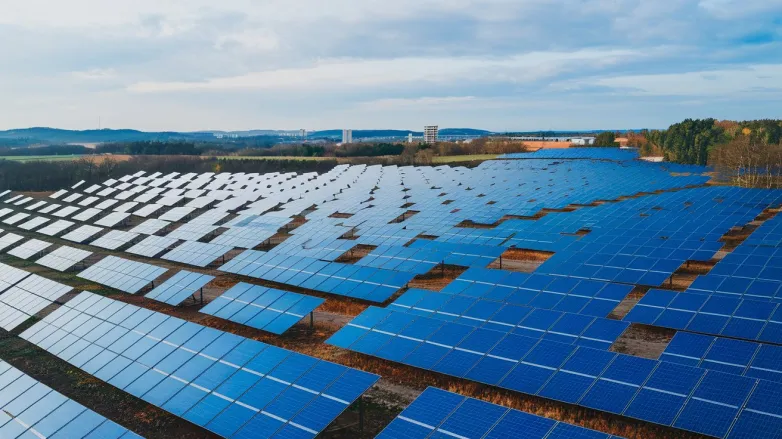Germany's Swift Renewables: Permitting Reforms Lead Change
- Germany’s renewable energy revolution is underway, fueled by streamlined regulations and a push for independence from Russian gas—paving the way for rapid green growth despite lingering challenges.

Germany has significantly accelerated its renewable energy deployment, overcoming long-standing permitting delays that plagued the industry. Following Russia's invasion of Ukraine, which spurred urgency in transitioning from Russian gas, Germany effectively streamlined its regulatory processes. Legislative changes defined clean-energy projects as a national interest, simplified planning and assessment procedures, and mandated land allocation for wind turbines, enabling rapid approvals. Consequently, Germany has become the leader in renewable installations among European nations.
However, challenges remain as companies face lengthy logistics for transporting turbine components and ongoing supply chain issues for critical equipment. Despite advancements and increased solar panel installations, including popular residential options, energy prices continue to exceed pre-pandemic levels. Experts assert that affordable electrification and domestic manufacturing must be prioritized in future legislative efforts to sustain Germany's renewable momentum.
How is Germany addressing challenges in its accelerated renewable energy deployment?
Germany is proactively addressing the challenges that have emerged from its accelerated renewable energy deployment. Here are key initiatives and strategies that illustrate the country’s comprehensive approach:
- Enhanced Infrastructure Investment: Germany is increasing investment in infrastructure to support renewable projects, including roads and ports that facilitate the transportation of large turbine components. This investment aims to reduce logistical delays and improve the efficiency of renewable energy component delivery.
- Public-Private Partnerships: The government is fostering collaborations between public institutions and private sector companies to share resources and knowledge. By leveraging strengths from both sectors, Germany aims to streamline project execution and reduce operational inefficiencies in the renewable energy supply chain.
- Local Manufacturing Initiatives: To counter supply chain issues, Germany is focusing on increasing domestic production of renewable energy components. Initiatives are being launched to attract manufacturers to establish facilities locally, which not only mitigates logistical challenges but also boosts job creation in the green energy sector.
- Decentralized Energy Systems: Germany is promoting decentralized energy systems, such as community solar projects and local wind farms. This approach helps to distribute energy generation and reduce reliance on centralized infrastructure, making the grid more resilient to supply chain disruptions.
- Incentives for Renewable Technology Innovation: Financial incentives and grants are being provided to encourage research and development of innovative renewable energy technologies. This includes advancements in energy storage solutions, which are vital for managing intermittent renewable energy sources like solar and wind.
- Regulatory Simplification and Digital Tools: Beyond streamlining permitting processes, Germany is investing in digital tools and platforms that improve transparency and efficiency in project approvals. This includes the use of online permitting systems that allow for faster submission and tracking of applications.
- Public Engagement and Education: The government is actively engaging with communities and stakeholders to raise awareness of renewable energy benefits. Educational programs are being implemented to increase public acceptance of renewable projects and encourage local participation in energy initiatives.
- Targeted Transition Strategies: Recognizing that different regions have varying capabilities, Germany is developing targeted strategies that prioritize renewable deployment based on local resources and infrastructure. This ensures a more tailored approach that maximizes efficiency and effectiveness.
- Focus on Energy Efficiency: Alongside renewable energy expansion, Germany is emphasizing energy efficiency measures across various sectors, aiming to reduce overall energy demand. This dual approach helps offset some of the costs associated with high energy prices and enhances energy security.
- Integration of Smart Grid Technology: Investment in smart grid technology is underway to enhance the management of electricity flow from renewable sources. This technology not only helps balance supply and demand but also facilitates the integration of more renewable energy into the existing grid.
By implementing these strategies, Germany aims to sustain its leadership position in renewable energy while effectively addressing the challenges that arise during rapid deployment.
Also read

